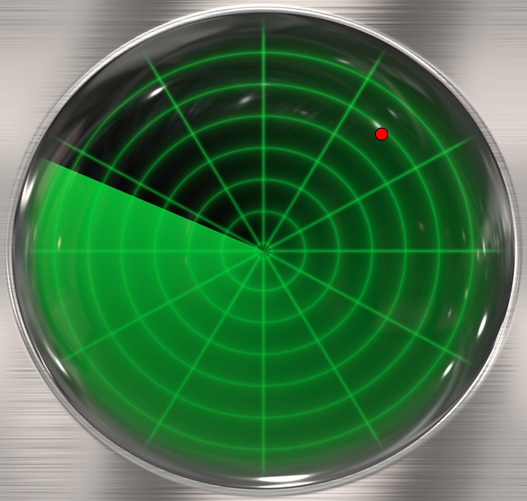A Coaching Model Created by Pearl Hilliard
(Executive Coach, UNITED STATES)
Relationship
Awareness
Dream
Action
Results/Review

In a little while, the radar “pings” again – and the client can see where she has moved to, since the last assessment.
Thus it is a continual reminder of where the client is, right in the moment. Another marker could be placed on the radar screen to represent the client’s dream, so the client can see the future goal.
In addition, this picture of a radar looks like a wheel of life, and could also be used in that context – where is the client now on that particular spoke, and where does she envision herself in the future?
This model is heavily influenced by appreciative inquiry, appreciative coaching and positive psychology. The focus is on being present to client wholeness and strength.
Relationship
This is the foundation of the coaching relationship. The first step is to build a trusting partnership with the client. This is achieved when the coach is respectful, authentic and fully present. This bonding creates a space of safety for the client to flourish.
Awareness
This is a stage of discovery – of the client’s values, strengths, purpose, moments of excellence and best practices. The root causes of the client’s current and past successes are explored. (The four core appreciative coaching questions are used.)* The client understands the present.
Dream
What does the client want? What are the possibilities? What is her vision for her preferred future? The dream is informed by the client’s responses to the four core questions. The coach energizes and inspires the client by focusing on her dream, her envisioned future.
Action
What are the action steps needed to move the client from her present towards her desired future? It is through action that the client’s vision is turned into reality. Intentions are clarified and goals set. What will the client do with the insights she has had? When creating the action plan, emphasis is placed on incorporating the structures, tools, processes and relationships that will support the client most effectively and sustain progress.
Results/Review
The client assesses her progress in achieving her dream. She acknowledges herself and celebrates her accomplishments. How will the client continue to flourish? The “Review” piece of the model is the radar pinging again, so the client can evaluate her new, current, status; is there now a new dream goal? If so, the client may choose to have another cycle of coaching.
Iterative process:
The RADAR model is the overall coaching process, but many of the steps will be used during each individual coaching session.
Orem, S. L, Binkert, J. & Clancy, A. L. (2007). Appreciative Coaching: A positive process for change. San Francisco: Jossey-Bass